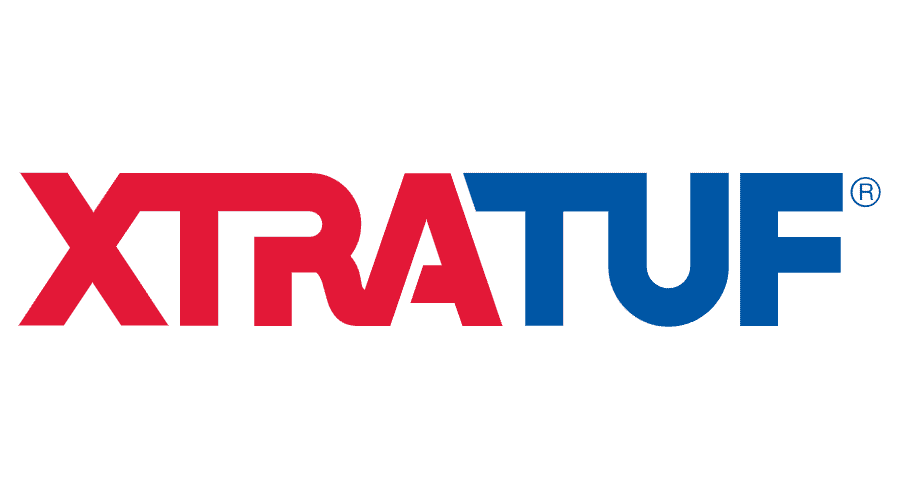Aug 06, 2021
Team USA
Olympic Games Tokyo 2020 Recap
After a year-long delay due to the COVID-19 pandemic, U.S. crews hit the Sea Forest Waterway to compete at the Olympic Games Tokyo 2020, and while the team did not reach the medal stand, the U.S. still made five finals, set an American-record time in the lightweight women's double sculls and saw numerous first-time senior national team members gain valuable Olympic experience as the focus turns towards Paris 2024.
While this year's squad had 11 returning Olympians with six Olympic medals amongst them, it also included 11 that were racing at their first senior-level event, let alone Olympic Games.
After qualifying for Tokyo at the Final Olympic Qualification Regatta in May in Lucerne, the lightweight women's double sculls crew of Michelle Sechser (Folsom, Calif./University of Tulsa) and Molly Reckford (Short Hills, N.J./Dartmouth College) missed the medal stand by a deck but still became the first U.S. crew to make the Olympic final in the event since Sarah Garner and Christine Collins in 2000, setting an American record in the process.
On a day that saw several world records broken, Sechser and Reckford finished second in their semifinal by a bow-ball to the Italians, breaking the previous Worlds' Best Time and setting an American record with a time of 6:41.54.
In the race for the medals, the final sprint left just one second – a half-length – separating the gold medal-winning Italian crew from the fifth-place American boat.
The men's eight featured eight, first-time Olympians including three senior national team rookies, with only Austin Hack (Old Lyme, Conn./Stanford University) returning from the 2016 boat.
The crew of coxswain Julian Venonsky (Malvern, Pa./University of California, Berkeley), Liam Corrigan (Old Lyme, Conn./Harvard University), Conor Harrity (Weston, Mass./Harvard University), Nick Mead (Strafford, Pa./Princeton University), Alexander Richards (Watertown, Mass./Harvard University), Hack, Alex Miklasevich (Pittsburgh, Pa./Brown University), Justin Best (Kennett Square, Pa./Drexel University), and?Ben Davison (Inverness, Fla./University of Washington) finished fourth in the final, missing a medal by just over a second, or about three seats. New Zealand won gold by about three seats, with Germany winning silver in a photo finish with Great Britain.
Earlier in the week, the U.S. led for much of the heat before the defending world champions from Germany pulled away.
"From my perspective, especially coming from the start of this quadrennial in 2017, I think this group – it's so young. It has so much potential that I'm excited to see (what happens)," Venonsky said. "We only have three years until the next one, to where we see where this program goes. I have the utmost confidence in them. I'm just so excited to see guys like Liam, like Justin, just keep progressing and keep improving at the trajectory they are (on). They are the best rowers I've ever had the pleasure of being on a team with."
Like the men's eight, the women's eight featured a bunch of talented newcomers including four rowers racing at the senior level for the first time. Only coxswain Katelin Guregian (Detroit, Mich./University of Washington) and seven-seat Meghan Musnicki (Naples, N.Y./Ithaca College) returned from the gold medal-winning Rio crew.
Having not raced internationally this season before Tokyo, the crew of Guregian, Kristine O'Brien (Massapequa Park, N.Y./University of Virginia), Musnicki, Regina Salmons (Methuen, Mass./University of Pennsylvania), Olivia Coffey (Watkins Glen, N.Y./Harvard University), Brooke Mooney (Keene Valley, N.Y./University of Washington), Gia Doonan (Rochester, Mass./University of Texas), Charlotte Buck (Nyack, N.Y./Columbia University), and Jessica Thoennes (Highlands Ranch, Colo./University of Washington) opened the regatta with a victory over Romania in their heat.
In the final, Canada jumped out to the early lead and then held off New Zealand to win the gold medal. The U.S. pulled up even with China for third with about 750 meters to go, but the Chinese boat used the fastest final 500-meter split to claim the bronze medal by about a half-length.
"I am deeply, deeply proud of myself and my teammates and my coaches and the women that aren't in my boat – that are back home and that are here at this regatta (in other boats)," Guregian said. "To get here took an inordinate amount of effort and belief in ourselves and each other. And, I have said this to the group. I would do the whole five years over again, even knowing what the result would be. That's how much these women mean to me; that's how much lining up at the Olympics with these eight, strong, independent, incredible women means to me. It's the honor of my lifetime, and I wouldn't give it up for anything."
The men's four featured one returning Olympian in Anders Weiss (Barrington, R.I./Brown University), as well as Andrew Reed (Wayland, Mass./Harvard University), senior national team rookie Michael Grady (Pittsburgh, Pa./Cornell University) and the team's youngest rower, Clark Dean (Sarasota, Fla./Harvard University), in the stroke seat.
The crew opened its regatta with a second-place finish in the heat, advancing directly to the final. But in the race for the medal, the U.S. had issues with its skeg and could never get into medal contention. Australia built a boat-length lead in the first 1,000 meters before holding off Romania and Italy over the final quarter of the race. The U.S. finished fifth.
"It was a bit deeper, provided a bit more stability in the wind and was better for steering," said Coach Tim McLaren about the boat setup, which was the same one used in London when the four won the bronze medal.??"Although decisions about equipment, rigging, and other things are?done in collaboration and most coaches seek feedback from the guys, it is (done) with the general understanding that the responsibility is?not theirs, it still rests with the coach. I feel very badly?about how it transpired.?The guys just want to work hard and race, and they feel like the steering?equipment let them down.?The guys are angry, sad, frustrated, and?disappointed, and I share that. I feel most for the guys because we know these opportunities don't come around very often. We felt we had more in us. A lot of things?can happen in racing, and we have seen a lot of disappointment here?(in Tokyo), and equipment failure shouldn't be one of them."
In the women's double sculls, three-time Olympian Gevvie Stone (Newton, Mass/Princeton University) and national team rookie Kristi Wagner (Weston, Mass./Yale University) also finished fifth. The U.S. sat about a length off a medal position through the first half of the race but could never cut into the deficit. Romania took command of the race early, building a length of open water by the halfway point and holding that margin the rest of the way down the course, leaving the rest of the crews to fight for the silver and bronze medals. New Zealand, the defending world champions, claimed the silver medal, with The Netherlands taking bronze.
"We raced hard," Stone said. "It was the Olympic final, and we worked hard in the semi to put ourselves there. The goal was to go out and have a great race in the hopes that that would put us on the podium. We attacked it from the first stroke. We didn't give them a head start today, and I really think we fought every stroke."
For the first time since 1992, the women's four was back on the schedule as World Rowing reached gender equality with the Olympic program. The U.S. boat of two-time Olympian Grace Luczak (Ann Arbor, Mich./Stanford University), Kendall Chase (Evergreen, Colo./University of California, Berkeley), senior national team rookie Claire Collins (McLean, Va./Princeton University) and Madeleine Wanamaker (Neenah, Wis./University of Wisconsin) ended their regatta with a victory, winning the B final to finish in seventh-place overall. The U.S. trailed Romania 500 meters into the race but took the lead as the crews approached the midway point and rowed to a victory.
"I think it's good to walk away from this, especially for those of us who are continuing to row, with just a really fun race," Wanamaker said after the B final. "It's just good to be reminded of how cool this is and to have a good time at the Olympics in competition, even if it didn't come together at the beginning of the regatta. I'm just proud of us and happy to walk away with a win."
"Taking a moment to step outside of ourselves, being in the women's four event, this is the gender equalizer for having equal numbers of men and women, so it's really an honor to be able to race in this event," Luczak said. "I think the field is going to continue to grow and I'm really excited for the future of women's rowing. It's very, very cool being a part of that history, so I'm really proud of that for our boat."
In the women's single sculls, two-time Olympian Kara Kohler (Clayton, Calif./University of California, Berkeley) finished third in the B final to finish ninth overall. Kohler won her heat and finished second in her quarterfinal behind defending world champion Sanita Puspure to reach the semifinals.
However in the semifinal, Kohler got off to a shaky start and missed advancing by a half-second, finishing fourth just behind Austria's Magdalena Lobnig.
"I've just learned that you have to take it step-by-step," said Kohler on what's she's learned in the nine years between her Olympic experiences. "Your goals aren't going to come in a linear form. From Cal, we always said, 'Don't let the highs get too high or the lows get too low,' so now is a really good opportunity for me to implement that, to not let myself get too down and have perspective."
Four-time Olympian Megan Kalmoe (St. Croix Falls, Wis./University of Washington) and two-time Olympian Tracy Eisser (Fair Lawn, N.J./Cornell University) finished fourth in the B final of the women's pair for a 10th-place finish overall. The duo decided to focus on the pair during the spring before winning trials in early June.
"I'm glad we did it," said Kalmoe on focusing on the pair. "To me, it was really just a huge honor to race in such an incredible, very deep, very competitive field of athletes, where every single person in every single boat is so good. None of the talent gets diluted; all your performances are you and your partner and that is it. We didn't get the results that we would have liked. Obviously, you want to come here, and you want to win. But I think with everything that we've gone through this year and last year, we did absolutely the best that we could."?
Likewise, the women's quadruple sculls crew of three-time Olympian Ellen Tomek (Flushing, Mich./University of Michigan), two-time Olympian Meghan O'Leary (Baton Rouge, La./University of Virginia), senior national team rookie Alie Rusher (West Bend, Wis./Stanford University), and Cicely Madden (Weston, Mass./Brown University) finished fourth in the B final for a 10th-place finish overall.
"I feel like what Meg said about taking what happened here and rather than having it drag us down or be really disappointed, using it as a starting point," Rusher said. "(Cicely and I) both learned so much from this experience, and I think that, although it is very painful, it's going to make us tougher. It's going to make us approach training smarter in the long term."
As the focus turns towards Paris 2024 and Los Angeles 2028, USRowing is continuing an in-depth examination of the national team programs that started late last year. Click here for a statement from Nobuhisa Ishizuka, USRowing's Board Chair and President, and here for a statement from USRowing CEO Amanda Kraus.
"With the conclusion of our competition here in Tokyo, I'm devastated for our athletes and staff who have trained and competed so hard for the last 16 months since the postponement of the Olympic Games in 2020," said Matt Imes, USRowing's High Performance Director. "We obviously hoped to achieve better overall results. As an organization, we have already started the process of reviewing our national team programs, which will include feedback and analysis from this Games. USRowing is committed to making the necessary changes to provide our athletes with the best possible structure and environment to achieve success in Paris 2024 and beyond."























